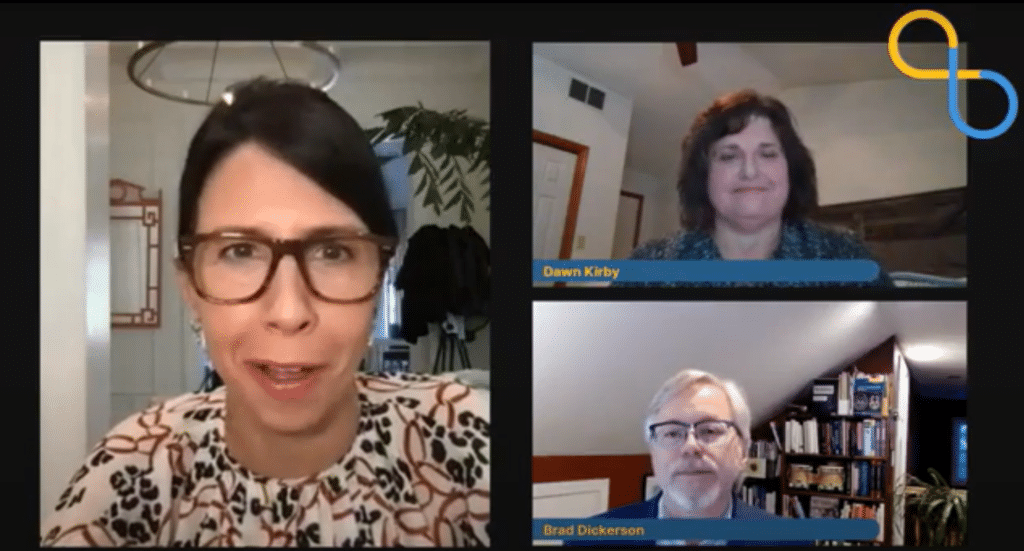AFTD Medical Advisory Council Member Discusses FTD Care in “LiveTalk” Interview

AFTD Medical Advisory Council chair elect Dr. Bradford Dickerson discussed caring for a loved one with FTD in a recent interview featured in Being Patient.
Dr. Dickerson, director of the Frontotemporal Disorders Unit at Massachusetts General Hospital, joined Being Patient’s founder Deborah Kan and FTD caregiver Dawn Kirby for the “LiveTalk” series. He provided an overview of FTD, its diagnosis process, and the symptoms associated with the disease.
“FTD probably doesn’t even affect 200,000 people in the U.S., which is the number that the FDA typically uses to designate a disease as a rare disease. When you’re dealing with a rare disease, it takes medical professionals longer to recognize it, especially when you’re talking about someone so young,” Dr. Dickerson said during the interview. “Most medical practitioners have never been taught that someone in that age range might be developing a neurodegenerative brain disease like frontotemporal degeneration.”
Dr. Dickerson referenced and pointed to Kirby’s story of caring for her daughter, Kara, who was diagnosed with FTD at age 29. Kirby and her daughter were featured in a two-part special report, “Beyond the Reflection,” which was inspired by a 60 Minutes segment on FTD that aired in 2019. Kara spent more than a year and half in and out of medical centers, searching for answers to explain her behavioral changes until her FTD diagnosis was finally confirmed in 2019.
“After she was diagnosed, she could still carry on a conversation. She could fix her medicine box. Yet, she did lack insight into what was wrong with her. There was total apathy when it came to hygiene. She would say something that was very upsetting and unrealistic, but she didn’t realize it was,” Kirby shared with Being Patient. “She would say things in public that were inappropriate. She didn’t care about other people’s space. Now, she has trouble with her bowels and bladder and she’s unable to control them. She has had 24-hour care for the last two years mainly for safety because she has no insight and very poor judgment.”
Dr. Dickerson advised her and other caregivers to become experts in learning and understanding what a diagnosed person wants and needs for their care.
“What we always have to do is to think, ‘I may not be the expert in the brain disease and the way her brain circuits are affected. But I’m the expert in her behaviors and inferring what she can’t communicate any longer about her wants and needs,’” he said. “That’s such an important thing to acknowledge and to just trust your instincts on.”
Watch the full Being Patient interview here.
By Category
Our Newsletters
Stay Informed
Sign up now and stay on top of the latest with our newsletter, event alerts, and more…
